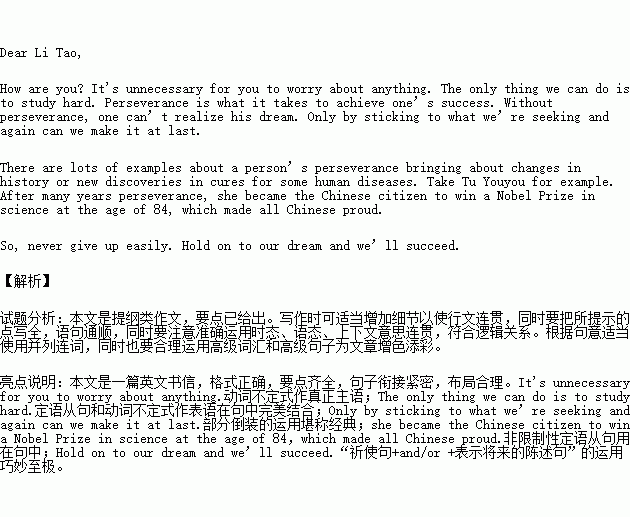题目内容
假定你是李华。你的好友李涛说高三学习压力太大,他有点担心自己坚持不住。请你用英语给他写一篇短信,内容包括:
1.坚持(perseverance)的重要性;
2.举例说明;
3.你的想法。
注意:
1.词数100左右;
2.可以适当增加细节.,以使行文连贯;
3.开头和结尾已为你写好。
Dear Li Tao,
How are you? It's unnecessary for you to worry about anything. _______________
_______________________________________________________________________________
_______________________________________________________________________________
_______________________________________________________________________________
_______________________________________________________________________________
_______________________________________________________________________________
_______________________________________________________________________________
_______________________________________________________________________________
_______________________________________________________________________________
_______________________________________________________________________________
Your,
Li Hua

